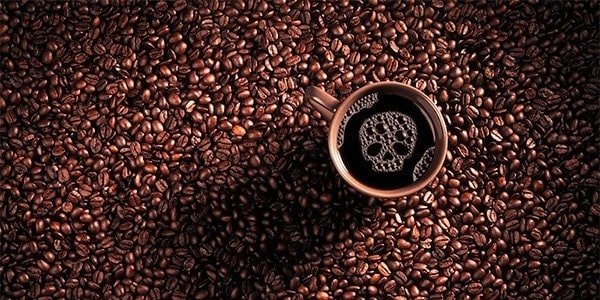5 Signs You’re Overdoing Your Caffeinated Drinks

If you can’t open your eyes in the morning without a cup of coffee, or if your colleagues ask you why you’re sour every time you skip your afternoon cup of the warm aromatic drink, it means that you’ve developed a caffeine addiction.
And while in small quantities coffee is a good start to the day, in larger quantities it can be harmful to health. A small amount improves mood and mental sharpness, but in a larger dose it can spoil your mood and deprive you of energy.
In very small doses, caffeine protects against Alzheimer’s, but studies show that in larger amounts it can lead to infertility and femur fractures in older women.
If you have a habit of drinking coffee and suddenly stop, you will see that you are really addicted. You will most likely experience irritability, fatigue, headaches and even depression.
But when do we take too much caffeine?
The safe amount is considered to be up to 300 mg per day, or the amount in 2-3 cups of coffee. Here you should pay attention that not only coffee is a source of caffeine.
You may be taking it unknowingly through sports drinks, nutritional supplements, and even some medications. Caffeine-containing foods and medications include many types of headache pills, some chocolates, iced and green teas, and others.
And while caffeine has different effects on different people, there are some effects that are common to almost everyone who has overdosed.
Here are 5 signs that your body is trying to tell you that you are drinking too much caffeine:
1. Unusual afternoon fatigue
If in the afternoon you feel a strong need for another coffee or a glass of cola, then most likely you are “hooked” on caffeine and are addicted to it. Scientists advise limiting the intake of these drinks because they can not only affect your energy balance with strong spikes and drops, but also damage tooth enamel.
2. Dark yellow or orange urine
The appearance of dark yellow or orange urine is a telltale sign of dehydration. Caffeine acts as a diuretic and causes the body to excrete more urine. The problem of dehydration occurs if you take a larger amount. If you stick to 1-2 cups of coffee there is no danger.
3. Insomnia
Caffeine needs 45 minutes to 1 hour to be absorbed by the body. It then remains in the blood for several hours. If it takes you more than 30 minutes to fall asleep at night, consider cutting back on caffeine.
Try not to drink caffeinated drinks after 12 noon and you will feel the difference. This applies not only to coffee, but to non-alcoholic nakoi, green tea and others. Also remember that decaffeinated tea and decaffeinated coffee also contain caffeine, but it’s about ⅓ that of regular coffee.
4. Anxiety
If you feel anxious and jittery, restless, with sweaty hands and a racing heart, try cutting back on coffee. Caffeine can exacerbate stress and depression because it interferes with calming neurotransmitters in the brain.
Caffeine can stimulate the adrenal gland to release more stress hormones such as adrenaline. This will make you feel restless and increase your heart rate.
5. Heartburn
If you get heartburn, one of the culprits could be caffeine. It relaxes the esophageal sphincter, which allows some acid to reach the throat. If you have this problem, try cutting back on caffeine to see if the heartburn problem goes away.



